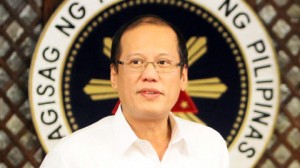Aquino opens Mindanao power summit Friday
DAVAO CITY—President Benigno Aquino III’s role in the Mindanao Power Summit here Friday would be more than just ceremonial, as he was expected to approve short-term and long-term proposals for implementation by the government to solve the power shortage on the island.
Secretary Luwalhati Antonino, chairperson of the Mindanao Development Authority, said the President would also actively participate in the discussions during the summit, described as the “largest gathering of power industry stakeholders.” About 350 people will be in attendance.
The summit was convened amid claims by National Grid Corp. of the Philippines (NGCP), the private company that distributes power to Mindanao utilities, that there has been a declining supply of electricity in Mindanao.
NGCP then resorted to forced power curtailments, which burdened consumers in some Mindanao areas with up to 10 hours of outages.
Power utilities that were trying to make the outages as short as possible were forced to buy additional power from private companies operating diesel-fired plants to compensate for the NGCP-imposed curtailments.
Article continues after this advertisementAs a result, the cost of electricity for the power utilities’ customers went up by more than half. For example, Davao del Sur Electric Cooperative previously charged about P6 per kilowatt hour. It now charges P10 per kWh.
Article continues after this advertisementMalacañang earlier said the government could not do anything to stop the curtailments because there was indeed a shortage of power supply.
But Antonino and many Mindanao officials would not toe the line.
“The Power Summit accords us the opportunity to discuss the real Mindanao power situation and the specific short to long-term measures that stakeholders wanted acted on jointly by the government and the industry players,” Antonino said.
“This is being done for and by the Mindanaoans who have a direct stake in the Mindanao power issue and what needs to be done, and the President will be there to see to it that the proposed measures are thoroughly studied and the doables are carried through,” she added.
Solar resources
Bayan Muna Representative Teodoro Casiño said consensus on substantial issues and options should come out of the summit and not done deals.
He said the government should be able to solve the energy shortfall without jacking up electricity rates.
Casiño said one measure was for the government to take over management of private power barges “to ensure that power is being sold at cheaper baseload prices.”
He said for the long-term solution, Congress should approve House Bill No. 5405 or the proposed One Million Solar Roofs Act. The bill proposes incentives and financing facilities to encourage the use of solar energy by ordinary electricity consumers like residences, offices and small to medium business establishments.
“Solar resources are the most promising. This is because the average range of hours of sunshine in the Philippines is between 4.3 hours per day in July and August and 8.6 hours per day in April. On balance, there are 2,105 sunshine hours annually and approximately 5.8 sunlight hours for each day the whole year,” Casiño said.
Epira amendments
In Kidapawan City, North Cotabato Governor Emmylou Taliño-Mendoza said she would present her proposals such as amendments to the Electric Power Industry Reform Act or Epira Law.
Mendoza, a former lawmaker, said the Epira Law provided the legal framework for the privatization of Napocor and the deregulation of the country’s power industry.
She said this was also being used to privatize the government’s remaining power assets.
“The power outages are but a way of conditioning the minds of consumers that there is a power crisis, and such conditioning has something to do with the privatization of the remaining government-owned power utilities in Mindanao,” she said.
